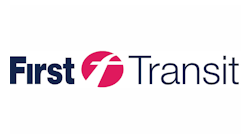Manager of Division Support
First Transit
Emily Hehemann is 26 years of age and has worked for First Transit’s Corporate Headquarters in Cincinnati, Ohio, for four years. Hehemann began her career with First Transit in the Business Development Department as a proposal manager working with the senior vice president of Business Development to develop more than 60 proposals in response to RFPs for Transit Contracting, Transit Management and School Bus services.
Hehemann was promoted to the position of manager of Division Support in November 2009 where she assumed responsibility for managing First Transit's Bus Operator Monitoring Service (Mystery Rider Services). Hehemann has managed more than 3,800 onboard operator observations on an annual basis, working with many customers including New York City Transit, COTA in Columbus, Ohio, and Tri-Met in Portland, Ore. She also supports First Transit's In Plant Quality Assurance practice, otherwise known as Bus Line Inspection Services. In this capacity she works with Ryan Minges, one of Mass Transit's "40 under 40" from October of 2010.
Her other duties include the management support of the Transit Management Division which includes supervision of the cadre of independent contractors, support for all of the region vice presidents, and all contract and invoicing of customers. She is a valuable part of the Transit Management Division’s senior management team. She regularly interacts with more than 60 transit systems throughout the United States and Canada.
Hehemann has demonstrated a dedication to the public transit industry and has distinguished herself as a manager "on the move" within First Transit. She is a 2007 graduate of the University of Cincinnati receiving a Bachelor of Arts in Journalism. She has previously worked with Cincinnati Magazine as both a journalism intern and as a freelance writer.
“As a proposal manager I was able to learn and write about a wide range of transit issues — I now get to be more involved in our clients’ locations, see how each of them function and see their specific struggles and accomplishments.”
“This industry allows so many people that rely solely on public transportation to be mobile that otherwise may not be able to accomplish their everyday tasks.”




